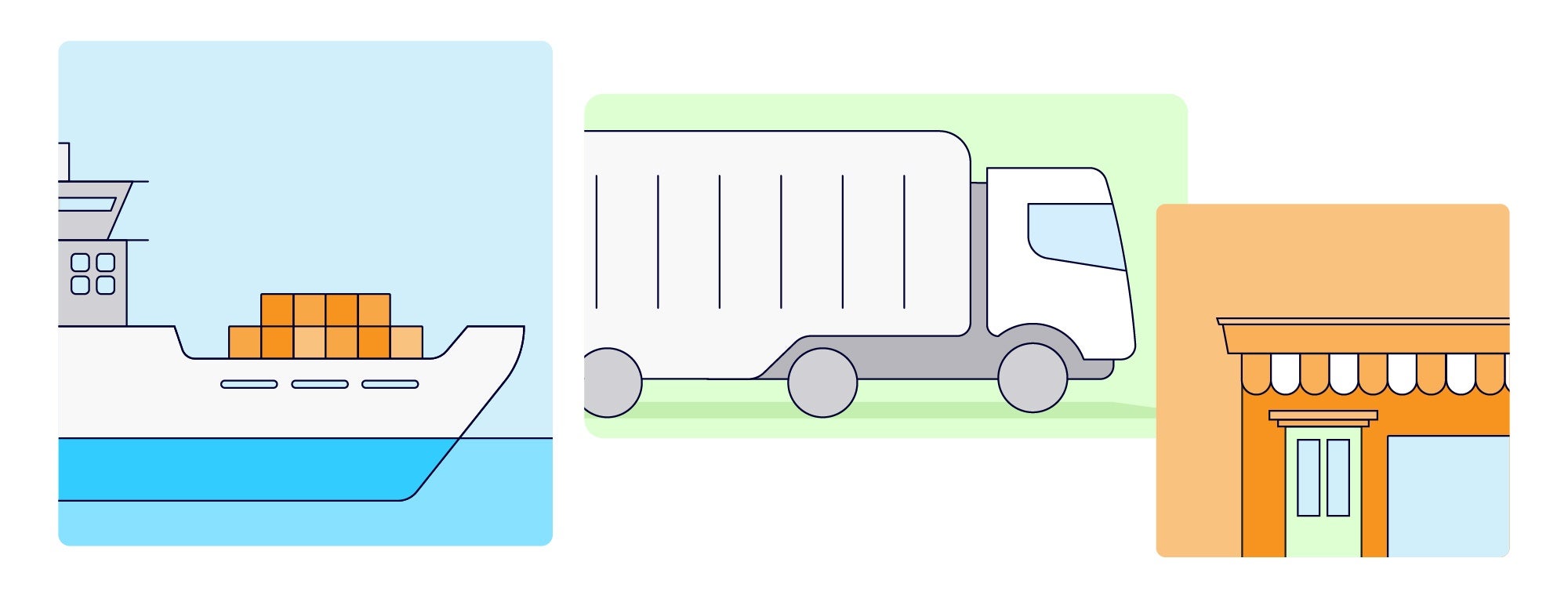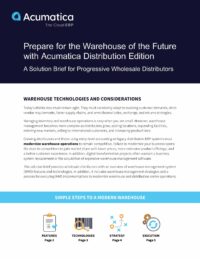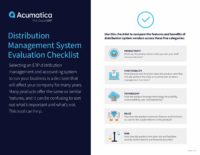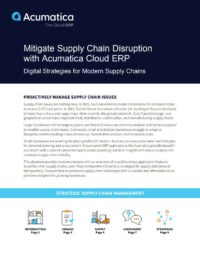The Benefits of an ERP Solution for Supply Chain Management
For your SCM needs, an ERP solution delivers some impressive benefits.
Greater Visibility Across Global Processes
With an ERP solution at the center of your operations, you have visibility into every aspect of your supply chain processes. You can see what’s happening locally and globally in real time. With personalized dashboards and customized reporting, you can address potential pain points with pinpoint precision—before they even pop up. This ensures products are made correctly, orders are delivered on time, and satisfied shoppers become loyal customers.
Higher Data Accuracy
Data is knowledge, and the more data you have, the more informed you are—unless the data is incorrect. Employees are human, and even the most careful and detail-oriented among them will make occasional mistakes. An ERP solution automates data entry, algorithm calculations, report creation, and more, improving your business’s accuracy and eliminating your teams’ concerns about making costly mistakes.
Lower Overall Costs
Automated supply chain workflows reduce your reliance on time-consuming, manual tasks. An ERP solution automates most inventory, purchasing, manufacturing, distribution, scheduling, and accounting management processes, so operations can be run remotely and/or on autopilot. This means the business can keep charging forward—even on weekends and holidays—while you and your teams maintain a healthy work–life balance. With an ERP system, you can work smarter instead of harder, increase efficiency, boost the bottom line with powerful automation, and lower overall operating costs.
More Creative Teams
By using an ERP solution to automate manual, repetitive, time-consuming tasks, you’ll release your teams from the limitations those tasks impose on their roles and foster individual creativity. Employees can then focus their efforts on value-adding work. This results in innovative thinking that optimizes your business operations and will ultimately give you a leg up on the competition.
“Acumatica with Orbis DSD has given us a competitive edge when it comes to sales capturing and logistics. We see this as a business enabler.” – Clyde Attard, Sales Division Manager, P. Cutajar & Co. Ltd.
“Cottingham uses Acumatica for the entire supply chain and finance operations, including both the Acumatica Financial Management and Distribution Management suites.” – Cottingham (Customer Success Story)
“Because we didn’t realize we already had something in another warehouse, we would buy things we didn’t need and carry excess inventory. In addition, we relied on internal knowledge for special pricing because the old system could only keep track of a few items. We’ve really taken the human element out of things like special pricing and leaned on the Acumatica system, which has paid a lot of dividends.” – Brett Davis, Operations Manager, Bob Davis Sales
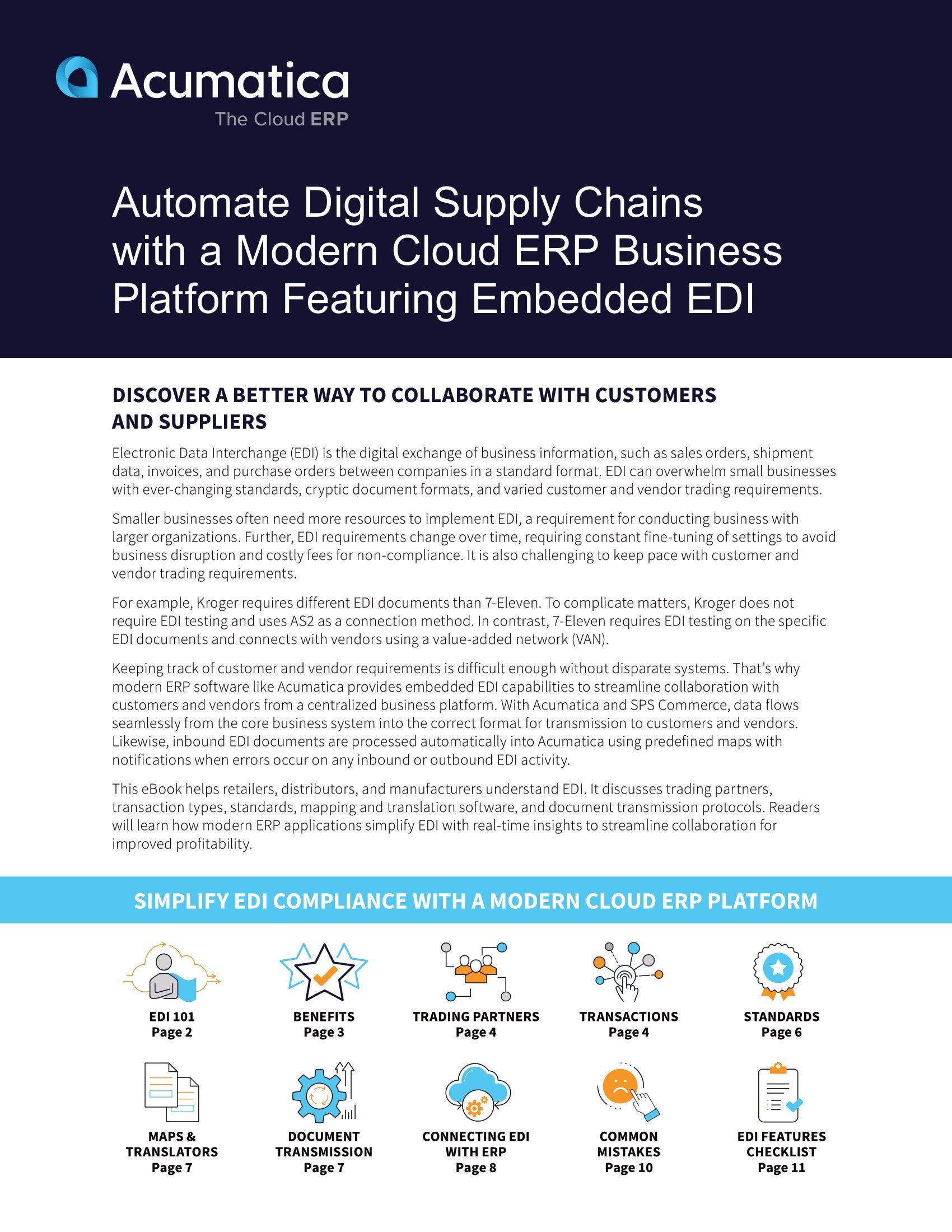
Download Supply Chain Automation Guide
Types of Supply Chain Management Software
SCM software can be divided into several types, including warehouse, transportation, and customer relationship management solutions.
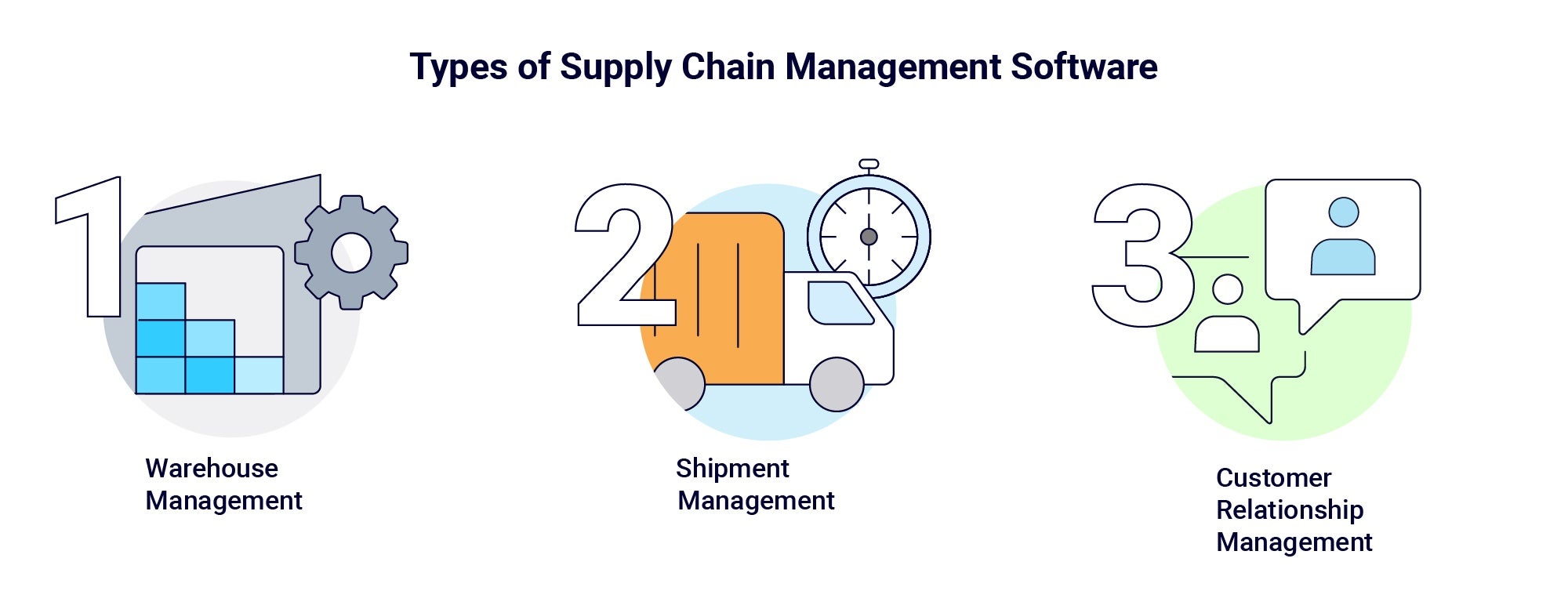
Warehouse Management: With warehouse management software, your warehouse processes—from organizing your space and managing inventory to fulfilling orders, scheduling labor, and more—are fully automated and can be managed from a central solution through personalized, role-based dashboards.
Transportation Management: Transportation management software governs the movement of a business’s physical products from the warehouse to the customer. Whether you’re shipping by truck, plane, boat, or train, transportation management software optimizes delivery schedules, assists with documentation, automates shipping processes, and more.
Customer Relationship Management: A critical component to any supply chain process is your relationship with your customers. Customer relationship management software stores contact, opportunity, customer account, and customer transaction information in one place, enabling team members to access updated, accurate information they can use to service customers effectively.
Key Takeaways
- Supply chain management software helps businesses of all sizes and industries across multiple stages, from raw materials to delivering it to customers. Through comprehensive ERP solutions, businesses efficiently manage the intricate details involved in this complex process.
- The benefits of an ERP solution with supply management software delivers powerful benefits, including greater visibility, higher data accuracy, lower overall costs, and more creative teams.
- Choosing the right SCM software today by doing intensive research into the product and the software vendor will prepare businesses for tomorrow’s challenges.
 Canada (English)
Canada (English)
 Colombia
Colombia
 Caribbean and Puerto Rico
Caribbean and Puerto Rico
 Ecuador
Ecuador
 India
India
 Indonesia
Indonesia
 Ireland
Ireland
 Malaysia
Malaysia
 Mexico
Mexico
 Panama
Panama
 Peru
Peru
 Philippines
Philippines
 Singapore
Singapore
 South Africa
South Africa
 Sri Lanka
Sri Lanka
 Thailand
Thailand
 United Kingdom
United Kingdom
 United States
United States
